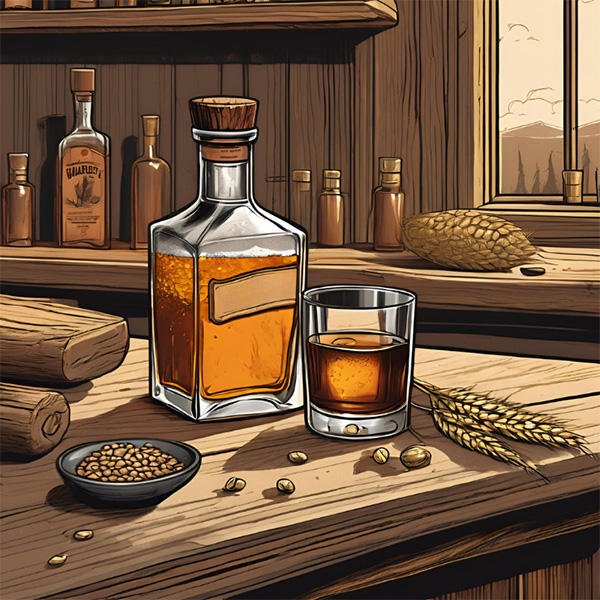Read by Michael Flamel

Barley, one of the oldest cultivated grains, has a history as rich and complex as the flavors it produces in our favorite drinks. This unassuming grain traces its origins back to the Fertile Crescent, where it was first domesticated around 10,000 years ago. From these ancient lands, barley spread across Europe, finding its way into the diets and fields of diverse cultures. The Romans and Greeks revered it, using it for bread and porridge. By the Middle Ages, barley had become a staple in the British Isles, ultimately making the transatlantic journey to America with European settlers, embedding itself into the agricultural and culinary fabric of the New World.
Barley Fun Facts
Did you know that barley was once used as a form of currency? The Sumerians, one of the earliest civilizations, valued barley so highly that it was used to pay workers and trade for goods. Fast-forward to modern times, and barley is still making waves—not as currency, but as a crucial ingredient in some of our favorite foods and drinks.
Barley and Whiskey: A Perfect Pairing
Perhaps the most glamorous use of barley is in the world of whiskey. In particular, it is the principal ingredient in Scotch whisky, which has a devoted following worldwide. To make Scotch whisky, barley undergoes a process of malting, where the grains are soaked, germinated, and then dried, often over a peat fire, which imparts a distinct smoky flavor. This malted barley is then mashed, fermented, distilled, and aged in oak barrels to produce the rich, complex flavors we associate with Scotch.
Single Malt Scotch Whisky: Barley’s Star Turn
A single malt Scotch whisky is the product of a single distillery, made entirely from malted barley. This dedication to a single grain and single distillery ensures a purity of flavor, allowing the unique characteristics of the barley and the distillation process to shine through. Whether it’s the peaty Islay whiskies or the lighter, fruitier Highland varieties, single malt Scotch owes its depth and diversity to the humble barley grain.
Barley in the Kitchen
Barley isn’t just for whiskey lovers; it’s a versatile grain that can elevate your cooking in surprising ways. As a substitute for rice, barley brings a nutty flavor and a delightful chewiness to dishes. It’s perfect in salads, adding a hearty texture that complements fresh vegetables and tangy dressings. For breakfast, barley can be cooked into a creamy porridge, providing a nutritious and satisfying start to the day.
Health Benefits of Barley
Barley is a nutritional powerhouse. It’s high in fiber, particularly beta-glucan, which can help lower cholesterol and improve heart health. Barley also provides essential vitamins and minerals, including B vitamins, iron, and magnesium. Its low glycemic index makes it a great choice for those managing blood sugar levels, and its high fiber content aids in digestion and promotes a feeling of fullness.
More Than Just Food
Beyond the kitchen, barley finds its way into various products. Barley straw is used to clear algae from ponds, and barley is a key ingredient in the production of malt vinegar. Its versatility extends to animal feed, making it a valuable crop for farmers.
A Toast to Barley
As someone who founded a whiskey club, I’ve come to appreciate the nuanced flavors that barley can impart to a good Scotch whisky. Our monthly tastings have been a journey through the world of whiskey, exploring how different grains create unique profiles in Scotch, Irish whiskey, American bourbon, and rye whiskey. Barley stands out, not only in the whiskies we savor but also in the beloved Guinness stout, another favorite that owes its rich, creamy character to roasted barley.
Notable Distilleries
Significant distilleries making exemplary use of barley include Glenfiddich and The Macallan in Scotland, both renowned for their exceptional single malt Scotch whiskies. Across the pond, American distilleries like Anchor Brewing in San Francisco craft beers that highlight barley’s versatility, further cementing its status as a beloved grain.
So, next time you enjoy a glass of Scotch whisky or a pint of Guinness stout, remember the humble barley that makes it all possible. It’s quite likely you’ve been a fan of barley all along without even knowing it! Cheers to barley, the grain that continues to make history and enrich our lives in countless ways. ❖


 Previous
Previous

